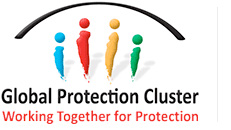As one of the Areas of Responsibility within the Global Protection Cluster, Gender-Based Violence Area of Responsibility (GBV AoR) works collectively to improve the effectiveness and accountability of humanitarian response for the prevention, risk mitigation and response to all forms of gender-based violence, to ensure that the agency and capacity of survivors is recognised and reinforced and that primary prevention efforts are effectively employed to address underlying gender inequality. The United Nations Population Fund (UNFPA) is the international agency at global level leading GBV AoR, and it is also the provider of last resort.
Gender-based violence (GBV) is an umbrella term used to describe any harmful act that is perpetrated against a person’s will, and that is based on socially ascribed differences between males and females. While men and boys also experience some types of GBV (particularly sexual violence) around the world, GBV has a greater impact on women and girls. Examples of GBV throughout the lifecycle include (but are not limited to): sex-selective abortion, differential access to food and services, sexual exploitation and abuse, including trafficking, child marriage, female genital mutilation/cutting, sexual harassment, dowry/bride price abuse, honour killing, domestic or intimate partner violence, deprivation of inheritance or property, and elder abuse.
Gender-based violence is pervasive in times of peace. However, in times of crisis GBV may become even more extreme. During emergency situations such as armed conflicts, different forms of GBV become exacerbated, to the point that sexual violence as one of the GBV forms, can become so widespread and systematic that it is considered a method of war and might be counted as a crime against humanity, a war crime or an act of genocide.
During emergencies, national systems, including health and legal systems, and community and social support networks weaken. This breakdown of systems can reduce access to health services, including sexual and reproductive health services, and also legal services. In such contexts, emergency response that does not take into account gender-specific vulnerabilities and capacities can further expose individuals to GBV. Programming to address GBV involves coordination, prevention and response with a multi-sectoral approach (eg. health and community services, shelter and site planning, water/sanitation, food security and nutrition, non-food item procurement and distribution, education and schools and community education, safety and security/justice).
Programming should be survivor-centered, ensuring the safety of the survivor, confidentiality, and respect for the survivor and her/his right to informed choice. Ensuring women’s and adolescent girl’s full participation, as well as engaging men and young people, is fundamental to promoting civilian protection from GBV. GBV-specialized programming focuses on women and girls due to structural and systemic gender inequality and discrimination that lead to their documented higher risk of GBV, and their lack of safe and equitable access to humanitarian assistance. Women and girls experience multiple forms of GBV and face many additional barriers to accessing services and recovering from GBV due to systemic gender inequality and other forms of intersectional discrimination. Key to a multisectoral response to violence against women and girls and maintaining their safety and well-being is an understanding of the gendered nature of the violence as well as its causes and consequences, and providing services within an environment conducive to survivors’ – and women’s in general- empowerment.
> GBV AND WOMEN’S RIGHT TO HOUSING, LAND AND PROPERTY
MORE INFORMATION
WWW.GBVAOR.NET
CONTACTS
Jennifer Chase
GBV AoR Coordinator
UNFPA, Geneva
chase@unfpa.org
Astrid Haaland
GBV AoR Deputy Coordinator
UNFPA, Geneva
haaland@unfpa.org

